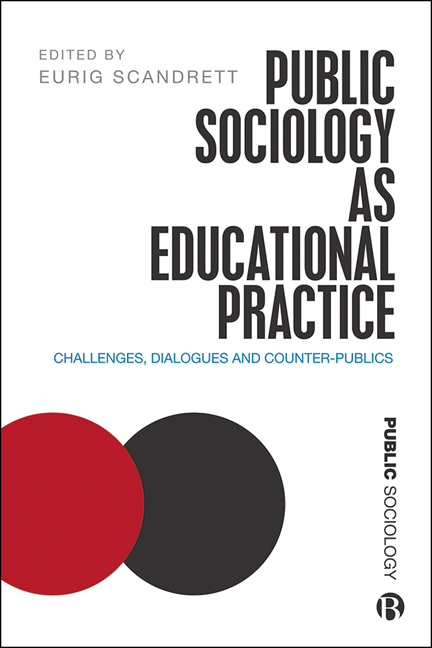III.3 - Experts by Experience: Art, Identity and the Sociological Imagination
Published online by Cambridge University Press: 02 March 2021
Summary
Introduction
This chapter offers a reflexive account of a co-produced, multisectoral, community-based project between Glasgow Open Museum (OM), Glasgow Association for Mental Health (GAMH) and Queen Margaret University (QMU). The project is framed around an accredited Public Sociology module, Identity Community & Society, in which participants explore sociological explanations of identity, community and society whilst engaging with and interpreting art and artefacts from the OM collections. We share our experiences of reaching over the chasms between the worlds of museums, mental health advocacy and higher education. Crucially, we hear from student participants, as co-authors, about the increased selfconfidence and reflexive knowledge resulting from participation in the project. In interpreting different art works, participants consider a range of sociological concepts, debates and theories, that frame their interpretation of art, but also facilitate the development of a critical consciousness about social issues that they have direct experience of themselves or that impact participants’ communities.
Widening participation is at the heart of this project; the adult learners, most of whom have limited recent experience of formal learning, became associate students of QMU, with full access to institutional resources whilst learning in a safe community space. In the presentation of our narrative here, we draw upon a combination of personal reflexive accounts, participant feedback and theoretical inspirations. More specifically, later in the chapter, we unpack the underpinning ethos of the project as theoretically framed by Freire's (1970) dialogical ‘pedagogy of the oppressed’, and we conceptualise the practice of our participants as Gramscian organic intellectuals (Gottlieb, 1989). We take the opportunity to weave critical reflection on the utility of Burawoy's (2005) theses for public sociology as a channel through which to interpret and problematise ‘for whom’ and ‘for what’ public sociology is, as well as our positions as value committed, partisan public sociologists, who are committed to creating a sociological space in which community-based adult learners mobilise their own sociological praxis. The focus in this chapter is explaining the meaning of (and need for) a public sociology as a particular style of practising sociology in an engaged, community-focussed way; and which speaks to, for, and with publics in their own communities.
- Type
- Chapter
- Information
- Public Sociology as Educational PracticeChallenges, Dialogues and Counter-Publics, pp. 267 - 286Publisher: Bristol University PressPrint publication year: 2020



